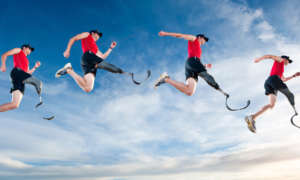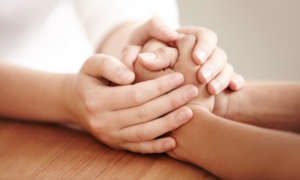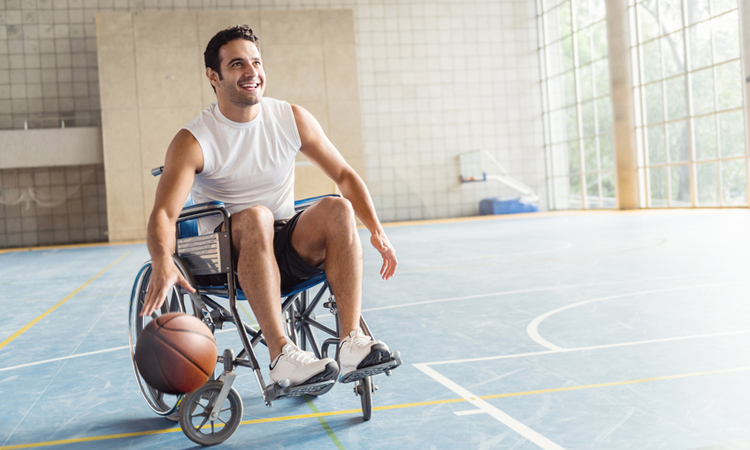“Dignity is something we all deserve—respect, self worth and the ability to make choices.”
-Rose Caiola
Learn empowering language and action
In John Irving’s latest novel, Avenue of Mysteries, protagonist Juan Diego has a significant limp, the result of an accident as a 14 year-old boy in Mexico. “The limp,” the omniscient narrator explains, “made Juan Diego look older than he was—he looked sixty-four not fifty-four…. Women—younger women, especially—offered him help he didn’t necessarily need.”
If you’re an empathetic person, it’s natural to see someone with a disability, imagine their discomfort or limitations and want to provide assistance. That drive to be helpful, however, may not always jive with the definition of dignity in the world of a person with a disability. Managing as much as possible on their own is often one of the ways individuals with disabilities feel empowered.
A few years ago I spent ten days at a professional training conference, where I met New York Times bestselling author, Kyle Maynard – who has a congenital amputation that ends his limbs at elbows and knees. Yet with the support of his parents – who did not focus on limits for their son – Kyle grew to be a wrestler, record-setting weight-lifter and accomplished at mixed martial arts. Recently, he crawled to the summit of Mt Kilimanjaro.
 Disabled? Only depending on how you define that term. Kyle lives on his own, drives, travels and even types up to 50 words a minute. He embodies Stephen Hawking’s suggestion: “My advice to other disabled people would be, concentrate on things your disability doesn’t prevent you doing well, and don’t regret the things it interferes with. Don’t be disabled in spirit as well as physically.”
Disabled? Only depending on how you define that term. Kyle lives on his own, drives, travels and even types up to 50 words a minute. He embodies Stephen Hawking’s suggestion: “My advice to other disabled people would be, concentrate on things your disability doesn’t prevent you doing well, and don’t regret the things it interferes with. Don’t be disabled in spirit as well as physically.”
On first meeting Kyle, it would be easy to erroneously assume huge limitations in his world, but that would discredit Kyle’s spirit. He’s a charismatic, intelligent, energetic and thoughtful presence. Spend a little time with him, and in no time at all Kyle’s physical disability disappears.
Sometimes, it’s hard to know how to act around people with physical disabilities. While they are mentally equal to us, when we observe physical limitations, we can inaccurately assume we need to lead any interaction from a place of empathy or sympathy. Helping people with all types of disabilities – this includes speech, mental and physical – creates a definition of dignity in the world that begins with approaching them as the people they are.
In her book Just Ask: Integrating Accessibility Throughout Design, Shawn Lawton Henry advises, “The most important thing to know when interacting with people with disabilities is that they are people. And just like all people, they are very different, including being different in how they are with disability issues.”
 Treating someone with dignity means offering honor and respect. Rather than focus on what can make us feel uncomfortable around a disabled person – for example, Henry lists such common responses as feeling sorry for people with disabilities, assuming bitterness or fear of saying the wrong thing – the more productive approach is treating people with disabilities the way you would anyone else. Let them lead the way by defining how and when help would be appreciated. Ask what kind of language they prefer in reference to themselves, and remember that their identity extends beyond the disability.
Treating someone with dignity means offering honor and respect. Rather than focus on what can make us feel uncomfortable around a disabled person – for example, Henry lists such common responses as feeling sorry for people with disabilities, assuming bitterness or fear of saying the wrong thing – the more productive approach is treating people with disabilities the way you would anyone else. Let them lead the way by defining how and when help would be appreciated. Ask what kind of language they prefer in reference to themselves, and remember that their identity extends beyond the disability.
Above all, appropriately interacting with people with disabilities stems from not making assumptions; then, discover how and in what way the person appreciates compensation for limitations. For example, in my time with Kyle Maynard I learned not to anticipate how to help him; he speaks up, forthrightly and comfortably, to ask for assistance – we didn’t need to hover around trying to predict how we could be helpful. Essential elements in this process include honesty, suspending judgment and openness to learning who the person is beyond the disability.
Regardless of the shape or functionality of a person’s body and mind, we all share the human experience. Aimee Mullins – athlete, model and actress whose legs were amputated below the knee when she was only one year old – says, “People presume my disability has to do with being an amputee.” Mullins adds, “But that’s not the case; our insecurities are our disabilities, and I struggle with those as does everyone.”
There is more common ground than not, among all human beings. When we think about another person more than we think about ourselves, we can learn to treat all people with dignity.

